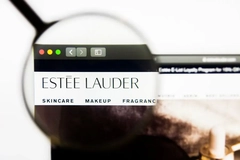July in review: South Korea becomes second-largest cosmetic exporter, EU chemical regulations debate

In industry news last month, the Korea International Trade Association (KITA) reported that South Korea became the second-largest global cosmetics exporter.
The European Commission (EC) unveiled a simplification package of chemical regulations, but green advocates accused the EC of sacrificing safety.
Meanwhile, EcoBeautyScore, the “first” global, science-based environmental rating system for cosmetics and personal care products, arrived in Europe.
Personal Care Insights spoke to UNICEF, Freedom4Girls, Be Girl, and Period about how the water crisis impacts safe period care.
We look back at the biggest stories from July.
L’Oréal bolsters professional hair care with Color Wow acquisition

L’Oréal signed an agreement to acquire viral hair care brand Color Wow. The personal care corporation called Color Wow one of the world’s fastest-growing professional hair care brands. Color Wow’s growth can be largely attributed to its loyal following among stylists, media, and consumers. The acquisition strengthened L’Oréal’s Professional products portfolio. Meanwhile, L’Oréal Paris launched an AI-powered personalized skin assistant. The tool leverages L’Oréal Paris’ proprietary knowledge on beauty in hair care, hair color, makeup, and skin care.
K-beauty takeover: South Korea passes US as second-largest cosmetic exporter
 The founder and CEO of the Green Chemist discusses the complexities of achieving a sustainable production of natural cosmetics. South Korea became the second-largest global cosmetics exporter, surpassing the US and trailing behind France. According to KITA, the country exported US$3.61 billion worth of beauty products from January to April, edging out the US with US$3.57 billion. To maintain its cosmetic export growth, South Korea discussed measures to reduce technical barriers to trade with China. The country also pushes into European and Middle Eastern beauty markets.
The founder and CEO of the Green Chemist discusses the complexities of achieving a sustainable production of natural cosmetics. South Korea became the second-largest global cosmetics exporter, surpassing the US and trailing behind France. According to KITA, the country exported US$3.61 billion worth of beauty products from January to April, edging out the US with US$3.57 billion. To maintain its cosmetic export growth, South Korea discussed measures to reduce technical barriers to trade with China. The country also pushes into European and Middle Eastern beauty markets.
EU Green Claims Directive withdrawal threat sparks political backlash and NGO warnings
An EC spokesperson announced plans to withdraw the Green Claims proposal, leading to the cancellation of the final negotiations between EU institutions. The directive aimed to combat greenwashing by requiring companies to substantiate voluntary environmental claims with evidence. The potential withdrawal measure is particularly significant for the personal care industry, where green marketing is prevalent and consumer demand for sustainability is strong. “The Commission’s position on this file will depend on the outcome of the negotiations of the co-legislators,” an EC spokesperson told us.
Natural vs sustainable: Cosmetic ingredients’ exploitation of environmental resources
Natural cosmetic ingredients require large amounts of environmental resources, complicating sustainability in the manufacturing process. Therefore, assuming natural means sustainable creates a fine line to greenwashing. We spoke to industry experts to discuss the complexity of sustainability that the natural cosmetics industry faces, ahead of the upcoming EU Deforestation Regulation.
EU Omnibus Act: Financial gains, consumer safety and CMRs spark debate
The EC unveiled a simplification package of chemical regulations, arguing it would save the industry millions. However, the move sparked concerns from green advocates who accuse the EC of sacrificing consumer safety. The changes apply to Classification, Labeling, and Packaging and chemical regulations. We spoke to Natrue about how the regulations will benefit SMEs in the natural cosmetics market. 1.jpg) We talk about how sun care increasingly blends with skin care, hair care, and color cosmetics.
We talk about how sun care increasingly blends with skin care, hair care, and color cosmetics.
EcoBeautyScore makes European debut to answer call for greater transparency
EcoBeautyScore launched across Europe. The system offers brands and retailers a clear, transparent, and consistent way to measure and communicate the environmental footprint of beauty products. We spoke to the EcoBeautyScore Association about how the system can move the personal care industry toward a greener future and solidify consumer trust.
Water crisis endangers menstrual health: Industry’s role in fighting period poverty
Limited access to clean water presents significant challenges to safe, dignified menstrual management. According to Simavi, of the 800 million people who are menstruating daily, 500 million do not have the resources they need to manage their period, including clean water. Personal Care Insights spoke with several NGOs to explore how the industry can play a vital role in addressing the stigma and health risks associated with water access and period care.
Beauty without harm: US lawmakers push for safer cosmetics for Black women
US lawmakers reintroduced the Safer Beauty Bill Package, a set of four federal bills designed to ban and regulate harmful chemicals in personal care products. The legislation focuses on improving consumer safety — especially for Black women — by eliminating cancer-causing ingredients found in skin and hair care items. One of the bills focuses on Black hair care, pushing for investment in R&D for safer straightening and relaxing chemicals.
Counterfeit cosmetics now an industry-wide issue, warns transnational alliance
 1.jpg) Barentz showcased its new concept kit focused on timeless defense at Cosmetic Business 2025.Counterfeit cosmetics are rising due to the e-commerce and social media boom. We spoke with Jeffrey Hardy, director-general at the Transnational Alliance to Combat Illicit Trade, about the health dangers of fake products and the industry’s responsibility in monitoring their brands on digital platforms.
Barentz showcased its new concept kit focused on timeless defense at Cosmetic Business 2025.Counterfeit cosmetics are rising due to the e-commerce and social media boom. We spoke with Jeffrey Hardy, director-general at the Transnational Alliance to Combat Illicit Trade, about the health dangers of fake products and the industry’s responsibility in monitoring their brands on digital platforms.
Cultivation-free fragrances: Debut replicates rare molecules with plant cell biotech
Debut launched a plant cell platform that replicates intricate fragrance molecules without traditional cultivation. Unlike traditional sourcing methods, Debut’s biotechnology platform can recreate fragrance compounds in less than a year using fermentation-based processes. The technology eliminates the environmental and supply chain challenges of natural extraction. The founder and CEO of Debut told us that complex fragrance ingredients can now be replicated rapidly, sustainably, and cost-effectively.













